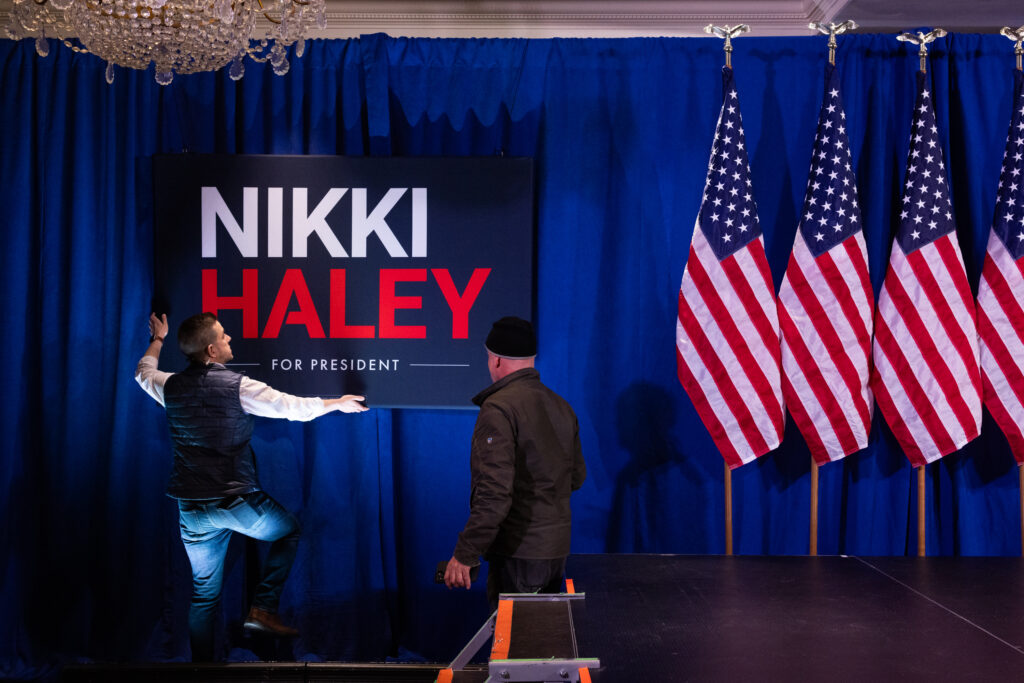Exactly 170 years ago, in Ripon, Wisconsin, the Republican Party was born. For 162 of those years, it got the big calls right. It was against slavery, socialism, and presidential overreach and in favor of business, sound money, and patriotism. Sure, it made mistakes, notably an extended flirtation with protectionism, but there were few more impressive parties in the world. Until 2016.
That year, the Republicans were taken over by a former Democrat who was openly contemptuous of their leaders, traditions, and principles. Where they had been for small government, he wanted to conscript the state to the culture wars. Where they had been for enterprise, he was for protected labor. Where they had been for free trade, he was for tariffs.
Such politicians are not exceptional. For example, Marine Le Pen’s National Rally in France is Trumpist, as is Matteo Salvini’s League in Italy. They, too, lean left on economics and right on immigration and have a weird thing about their leaders. It is hardly surprising that some Americans should be in that tradition.
The surprising thing, the thing I am still no closer to understanding after eight years, is how the GOP rolled over for someone who so obviously despised it. The most basic Republican principle is a suspicion of concentrated power. Yet the only nonnegotiable requirement to belong to MAGA is to grovel publicly before former President Donald Trump. Again and again, senior Republicans who had previously called Trump dishonest, vain, self-obsessed, cowardly, megalomaniac, or deranged have dropped to their knees before him.
Even Sen. J.D. Vance (R-OH), now the Trumpiest of Trumpsters, shared the then-conventional Republican view of the man when he started out: “I go back and forth between thinking Trump is a cynical asshole like Nixon who wouldn’t be that bad … or that he’s America’s Hitler.”
It’s so un-American, this fawning, this cultishness, this Führerprinzip. Yet it has taken over a party that used to believe in the dispersal of power, the constraint of executive authority, and the equality of all adult citizens before the law.

Last Tuesday’s votes were the showdown that Trumpsters wanted with a traditional Republican who believes in balanced budgets and standing by America’s allies. Former U.S. Ambassador to the United Nations Nikki Haley’s vote, between 15% and 40%, sadly reflects the level of support for Reaganism within the party.
The two candidates were on brand as they reacted to the result. “At its best, politics is about bringing people into your cause,” Haley said. “Haley got TROUNCED,” Trump said.
Will Haley now follow in the footsteps of other Republicans and abase herself before a man she knows to be unfit for office? She called Trump “unhinged” during the primaries, but many of her colleagues have rowed back from harsher words than that.
In her concession speech, she seemed to put the ball in the former president’s court: “It is now up to Donald Trump to earn the votes of those in our party who did not support him, and I hope he does. This is now his time for choosing.”
But if he really is unhinged, why should she “hope” he wins over the skeptics? She faces the question that so many have faced before her. Not those who backed Trump from the start but those who have some understanding of his character flaws. The question is this. Do you urge people to vote for someone who will degrade the office and cheapen the republic, supposedly out of fear of something worse? So far, with a handful of honorable exceptions, Republicans have flunked that test — have shown themselves, in Haley’s own phrase, as “followers, not leaders.”
If the former South Carolina governor believes that Trump is a menace, not only to a strong foreign policy and low taxes but to the rule of law, surely she cannot in conscience endorse him. And if she feels that the comatose President Joe Biden is equally unsuitable, the answer is surely to run for office herself.
CLICK HERE TO READ MORE FROM THE WASHINGTON EXAMINER
Never has the gap for a third candidate yawned wider. Ross Perot ran in 1992, complaining that the national debt had reached $4 trillion, 63% of GDP. Today, it is $34 trillion and 123%. And just as Trump is no Bush, Biden is no Clinton. If there is even the slightest chance of throwing the decision to Congress, Haley should in conscience make the attempt.
At the very least, doing so will allow her to emerge, Romney-like, with honor. Unlike so many politicians and commentators who have enabled what in their hearts they know to be dangerous and malevolent, she will have stood by America’s founding principles. What matters more than that?
